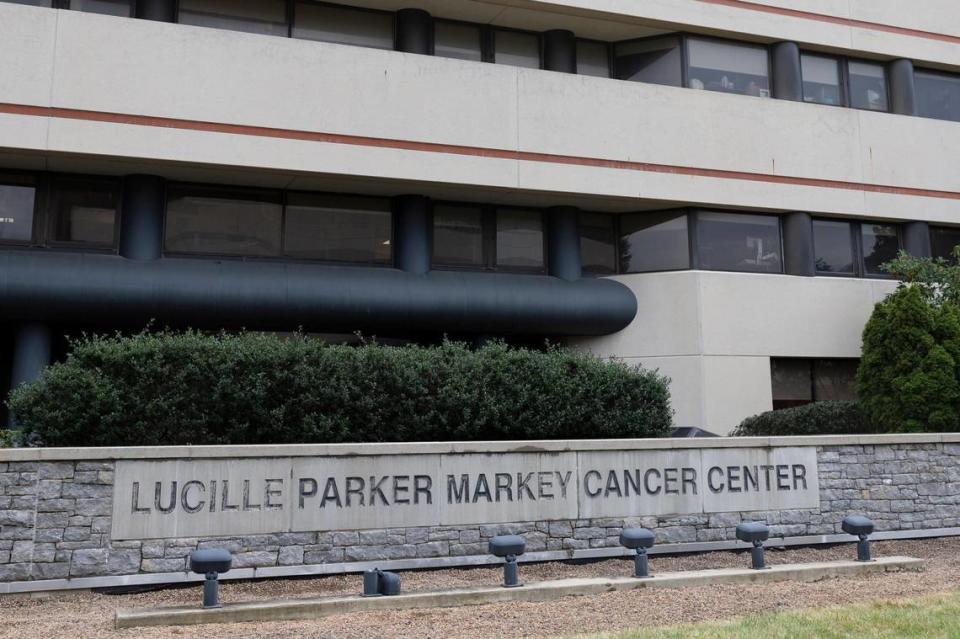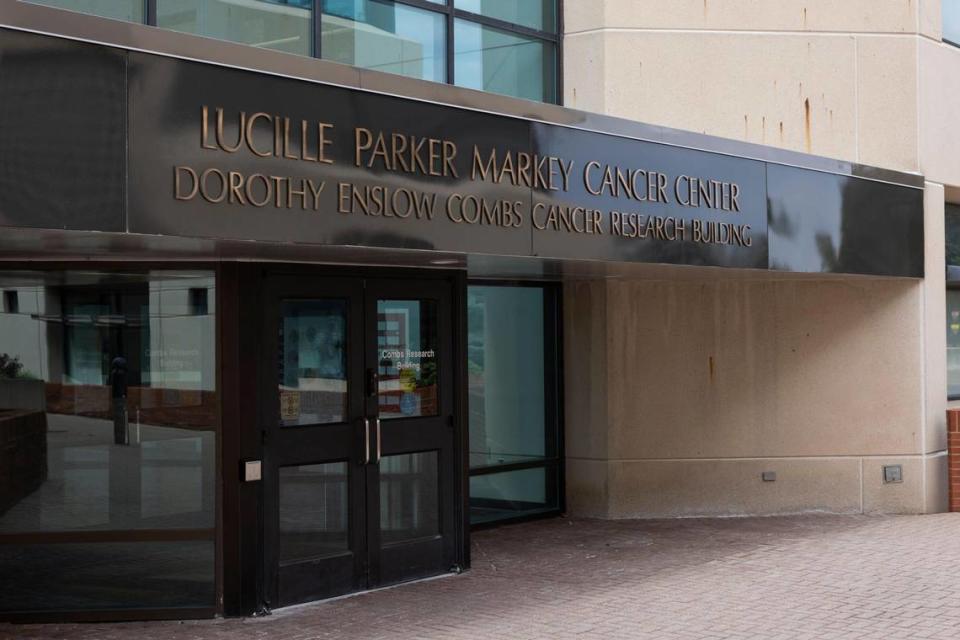UK’s Markey Cancer Center receives top designation from the National Cancer Institute
The Markey Cancer Center, part of the University of Kentucky’s health care system, has received the top designation from the National Cancer Institute, an honor that has been 10 years in the making.
Markey has been designated as a Comprehensive Cancer Center by the National Cancer Institute, which is the “pinnacle for the institution and the cancer center,” said Dr. Mark Evers, director of the Markey Cancer Center. The designation allows for more grants and trials at the center, and a holistic treatment experience for patients. It’s the only comprehensive cancer center in the state.
The National Cancer Institute is the federal government’s agency for cancer research and training. Comprehensive cancer centers are recognized for their research focused on preventing, diagnosing and treating cancer. They must demonstrate “an added depth and breadth of research,” as well as research and treatment across scientific areas, according to the NCI.
“It’s really the gold standard of clinical care, research and community outreach,” Evers said. “The thing about comprehensive centers ... the expectation is that they want cancer centers outside of their ivory towers, so to speak. So not to be insular, but really being out in the community, and that’s what it really means to be comprehensive.”
Markey Cancer Center was first designated as a NCI center in 2013. There are 72 NCI-designated cancer centers in the country, and 56 comprehensive cancer centers, according to NCI.
“Health care is a basic human right, and the heroes who work here every day are making sure Kentuckians have the very best,” said Gov. Andy Beshear. “They’re leading the way of scientific research and getting us closer to finding a cure to something that takes far too many of our loved ones from us every single year.”
Evers said this designation means there will be more opportunities for funding, training and research at Markey. All that should lead to better care and treatment options for patients.
“The biggest benefactors are the patients,” Evers said.
Kentucky has one of the highest cancer mortality rates in the country, according to the U.S. Centers for Disease Control and Prevention. Cancer is the second-leading cause of death in the state, behind heart disease.
The designation also means Kentuckians do not have to leave the state for top cancer treatment, a principle that has guided UK HealthCare in recent years. At Markey, 97% of patients are from Kentucky, according to UK HealthCare.
“We have everything that the best centers in the country have: the best treatment programs, the same level of treatments, and maybe clinical trials that are unique to Markey are here, and may not be found at other centers as well,” Evers said.
Robert DiPaola, UK provost and co-executive vice president for health affairs at UK HealthCare, said the designation should also help with recruitment and retention of UK HealthCare employees. The comprehensive designation could help attract top employees to UK HealthCare, Evers said.
“These types of designations are really important to show that level of ‘the best of the best,’” Evers said. “We’re all seeking the same high-level talent and the talent pool sometimes is limited.”
Earlier this year, UK announced plans to construct a new cancer center on South Limestone, which will bring all cancer treatment at UK HealthCare under one roof. The project is estimated to cost $500 million, and construction is scheduled to be complete in 2027, Evers said.


